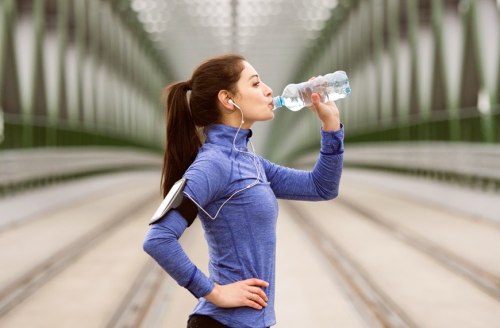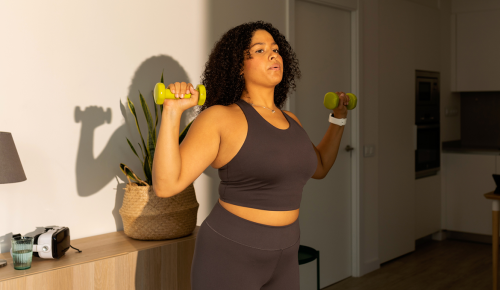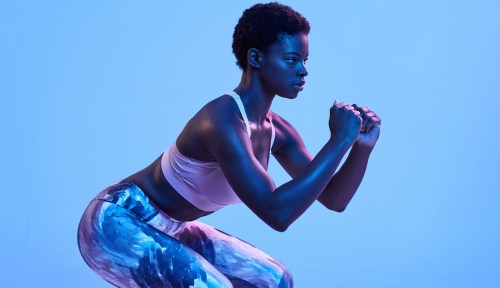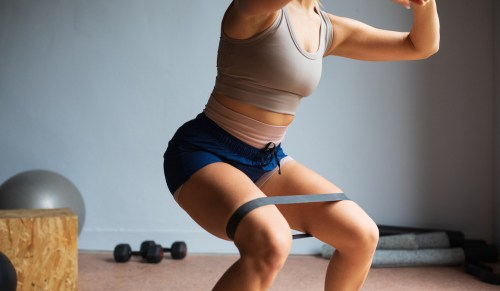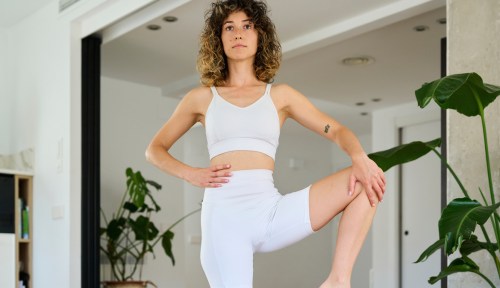Our editors independently select these products. Making a purchase through our links may earn Well+Good a commission
The importance of staying hydrated—especially when you’re working out—cannot be understated. While it’s not uncommon to see people carrying around gallon jugs of water at the gym, it is in fact possible to overdose on water. Unfortunately, what happens when you drink too much water during a workout isn’t commonly discussed. If you didn’t know already, you can definitely have too much of a good thing.
Hyponatremia, or water intoxication, is a condition that occurs when the body holds onto too much water, diluting the blood supply’s sodium levels. Typically caused by drinking an extreme amount of water in a short period of time, hyponatremia is common and potentially fatal. While your age, certain medical conditions, and medications can increase your risk, it can also be induced by exercise. A study conducted in 2002 by doctors from Harvard University, reported in the New England Journal of Medicine, found that 13 percent of Boston Marathon runners experienced some form of hyponatremia.
“It was initially seen most often in elite endurance athletes, like triathletes and ultra-marathoners. More recently, it has been described in football players and other active people,” says orthopedic surgeon David Geier, MD. “It usually develops from drinking more fluid than the amount of water you lose in sweat, urine, or breathing.”
Dr. Geier, a sports medicine specialist and the author of That’s Gotta Hurt: The Injuries That Changed Sports Forever, says the condition is especially common in athletes preparing for a race who drink too much water before the race and drink a lot along the course. And depending on the severity of the symptoms, it could become life-threatening. “Early symptoms can include dizziness, fatigue, bloating, puffiness, nausea, and feeling lightheaded. As it progresses, the athlete might exhibit vomiting, confusion, and altered mental status. It can even lead to seizures and death,” he explains.
So, how do you make sure you stay hydrated while working out without drinking too much? The best method is to ditch the idea that you have to pound as much water as you can and instead start listening to your body. Your kidneys can eliminate about 5-7 gallons (640-900 ounces) of water a day, but they can’t handle more than 27-33 ounce per hour, so cool it if you’re forcing yourself to drink any more than that.
“Because different activities cause people to lose sweat or bodily fluids differently, absolute fluid quantities are difficult to recommend,” says Dr. Geier. “Base your drinking according to thirst. For most athletes, the best hydration strategy before, during, and immediately following exercise is to drink fluids when thirsty.”
Sure, having a water bottle on hand at the gym is important. Taking frequent but small sips is better than chugging. And if you feel like your body doesn’t need water, you’re probably right.
Hilary Swank’s workout routine easily defeats dead butt syndrome. Or, find out which full-body move you should start all your workouts with.
Sign Up for Our Daily Newsletter
Get all the latest in wellness, trends, food, fitness, beauty, and more delivered right to your inbox.
Got it, you've been added to our email list.
